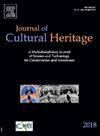气候规划中的文化遗产:对挪威国家气候文件和指南的分析
IF 3.3
2区 综合性期刊
0 ARCHAEOLOGY
引用次数: 0
摘要
文化遗产管理日益被认为是气候行动和可持续发展的组成部分。然而,有限的研究探讨了社会文化因素如何在连贯的气候战略中发挥作用。本文提出了一个分析框架来评估文化遗产在气候政策话语中的整合,并通过对20个挪威国家气候政策文件的案例研究进行了测试。本研究将变革方法应用于气候治理,强调文化遗产管理在支持系统性变革中的作用。该框架确定了由文化遗产范式驱动的政策话语的两个主要转变:(1)从愿景和行动到监测的三个阶段的整合;(2)扩大部门合作,为变革性的政府协调开辟途径。研究结果揭示了文化遗产角色的演变,从最初对气候影响导致的保护冲突的担忧,到认识到文化遗产是一个需要在适应战略中建立知识的部门。分析进一步提出了文化遗产通过共享的社会文化价值观对生活质量的贡献的扩展观点,强调了将其角色从技术顾问扩展到治理网络中的战略关系行动者的机会。通过考察挪威的案例,本研究明确了文化遗产作为跨部门合作、适应性治理和包容性决策催化剂的潜力切入点,为探索地方层面的可持续治理整合和跨学科合作奠定了基础。本文章由计算机程序翻译,如有差异,请以英文原文为准。
Cultural heritage in climate planning: An analysis of the Norwegian national climate documents and guidelines
Cultural heritage management is increasingly recognized as integral to climate action and sustainable development. Yet, limited research has explored how sociocultural elements are operationalized within coherent climate strategies. This paper proposes an analytical framework to evaluate the integration of cultural heritage within climate policy discourses, tested through a case study of twenty Norwegian national climate policy documents. Applying transformative approaches to climate governance, this study emphasizes cultural heritage management’s role in supporting systemic change. The framework identifies two primary shifts in policy discourse driven by cultural heritage paradigms: (1) integration across three stages—from visions and actions to monitoring—and (2) expanded sectoral collaboration, opening pathways for transformative governmental coordination. Findings reveal an evolution in cultural heritage’s role, from initial concerns about conservation conflicts due to climate impacts to recognizing cultural heritage as a sector requiring knowledge-building in adaptation strategies. The analysis further suggests an expanded view of cultural heritage’s contribution to the quality of life through shared sociocultural values, highlighting opportunities to extend its role from technical advisor to a strategic, relational actor within governance networks. By examining the case of Norway, this study concretizes entry points for cultural heritage’s potential as a catalyst for cross-sectoral collaboration, adaptive governance, and inclusive decision-making, setting a foundation for exploring local-level integration and interdisciplinary collaboration in sustainability governance.
求助全文
通过发布文献求助,成功后即可免费获取论文全文。
去求助
来源期刊

Journal of Cultural Heritage
综合性期刊-材料科学:综合
CiteScore
6.80
自引率
9.70%
发文量
166
审稿时长
52 days
期刊介绍:
The Journal of Cultural Heritage publishes original papers which comprise previously unpublished data and present innovative methods concerning all aspects of science and technology of cultural heritage as well as interpretation and theoretical issues related to preservation.
 求助内容:
求助内容: 应助结果提醒方式:
应助结果提醒方式:


